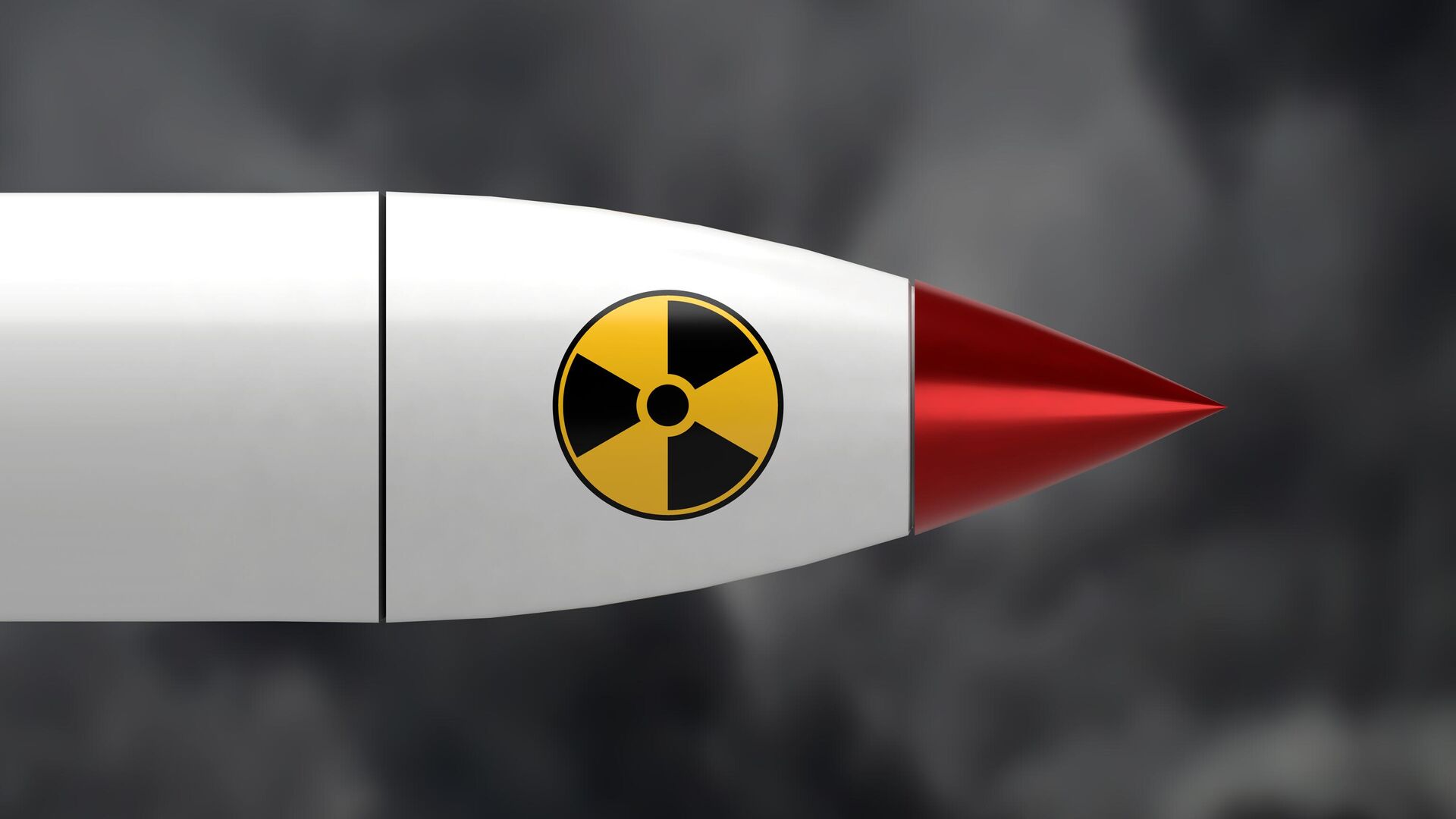https://sputnikglobe.com/20230928/more-nuclear-states-would-have-domino-effect-trigger-different-level-of-arms-race-1113763752.html
More Nuclear States Would Have 'Domino Effect,' Trigger 'Different Level of Arms Race'
More Nuclear States Would Have 'Domino Effect,' Trigger 'Different Level of Arms Race'
Sputnik International
If Saudi Arabia were ever to became ‘nuclear-armed’, it would set off a chain reaction that would augur badly for the region, Mehran Kamrava, Professor of Government at Georgetown University Qatar, told Sputnik.
2023-09-28T16:20+0000
2023-09-28T16:20+0000
2023-09-28T16:20+0000
analysis
nuclear weapons
nuclear warheads
sergey lavrov
saudi arabia
crown prince mohammed bin salman
mohammed bin salman
benjamin netanyahu
international atomic energy agency (iaea)
iran
https://cdn1.img.sputnikglobe.com/img/07e7/09/1c/1113769593_0:160:3072:1888_1920x0_80_0_0_5e3007412f5bb8971ab00f56dcf8158d.jpg
If Saudi Arabia were ever to become "nuclear-armed," it would set off a chain reaction that would augur badly for the region, Mehran Kamrava, professor of government at Georgetown University Qatar, told Sputnik.Saudi Arabian Crown Prince Mohammed bin Salman stated earlier in the month that if Iran were to acquire a nuclear weapon, his country would seek to do the same. “If they get one, we have to get one,” the crown prince stated in an interview on September 20. It should be noted that the Saudi royal also voiced apprehensions about “any country getting a nuclear weapon,” saying it would be a “bad move.” Incidentally, the de facto Saudi leader initially made the same statement back in 2018.'Balancing Regional Power' The crown prince “says openly and publicly that Saudi Arabia would need a nuclear weapon if Iran got one because of ‘security reasons and for balancing power in the Middle East,’” said Dr. Matthew Crosston, professor of national security and director of academic transformation at Bowie State University.The remarks by Crown Prince Mohammed bin Salman were followed by Saudi Arabia announcing that it was committed to moving forward with its program to build a civilian nuclear power industry, while allowing for greater oversight for International Atomic Energy Agency (IAEA) inspectors.“The kingdom has recently taken the decision to rescind its Small Quantities Protocol and to move to the implementation of a full-scope Comprehensive Safeguards Agreement (CSA)” Saudi Energy Minister Prince Abdulaziz bin Salman Al Saud said in Vienna on Monday at the IAEA’s annual general conference. 'Concessions & Security Guarantees'Furthermore, the debate around the possibility of Saudi Arabia acquiring a nuclear weapon comes as Riyadh and Tel Aviv could be poised to hammer out a deal that would normalize relations between the two countries. A US media outlet reported earlier in the month, citing Israel’s Minister of Strategic Affairs Ron Dermer, Israeli Prime Minister Benjamin Netanyahu’s “top confidant,” that a “normalization deal” was going to be worked out in the near future. Israel was “at the cusp” of a “historic peace deal” with Saudi Arabia, Netanyahu has said at the recent UN General Assembly.If Saudi Arabia is indeed in the final stages of normalizing relations with Israel, it would explain the timing of the crown prince bringing up the issue of nuclear weapons, Professor Mehran Kamrava suggested. In his opinion, Crown Prince Mohammed bin Salman was "sending a message to the US" in the hopes of "a maximum amount of concessions" from it. The concessions in question refer to reports of a uranium enrichment initiative for the kingdom purportedly floated as part of three-way talks between Saudi Arabia, Israel, and the US. Tel Aviv officials were cited as “quietly working with the Biden administration” on a project that would envision setting up a US-run uranium-enrichment operation in Saudi Arabia, according to a US media report this month. Prime Minister Benjamin Netanyahu ostensibly instructed leading nuclear and security specialists in his country to engage with US negotiators to facilitate the recognition of Israel by Saudi Arabia. The latter could purportedly be speeded up by aiding the kingdom in developing a civilian nuclear program. Neither the US nor Israel have agreed on such a plan, added the report citing sources. However, Joe Biden reportedly discussed the mulled plan when meeting with Benjamin Netanyahu in New York on the sidelines of the United Nations General Assembly.Describing the statements of Saudi Arabia regarding acquiring a nuclear weapon as “simply maneuvering,” the professor expressed his belief that such aspirations would not have any support.As to who might support a Saudi intention to acquire nuclear weapons on the international arena, there are “multiple sides with their own competing (and contradicting) interests,” Dr. Matthew Crosston pointed out. The professor used the phrase “triangulation strangulation,” as he suggested that there was more than just competing sides looking at the issue from a “direct binary calculation.”Saudi Arabia becoming nuclear-armed would hardly be viewed favorably by China, Crosston added, as Beijing’s “own plans in the region through the BRI project (Belt and Road Initiative ) would seem to indicate a lack of desire to see the region become more weaponized.”Regarding Washington, it would “clearly choose Saudi Arabia over Iran and would likely be the main motor of further arming the Saudis if it could not stop Iran from becoming nuclear,” the pundit said, adding:Speculating on where Saudi Arabia might turn to for acquiring a nuclear weapon, Dr. Matthew Crosston cited “renegade” factors, or “backdoor channels.”If Saudi Arabia were to become a nuclear power, the speculation that the "geopolitical reality of the region" would change was dismissed by Dr. Matthew Crosston. He added that he was basing his opinion on the presumption that “this likelihood does not happen alone in its own vacuum,” but rather as “part of a negative duality, where Saudi Arabia is convinced Iran is about to enter the nuclear club as well.”Additional Nuclear States a 'Disaster'Russian Foreign Minister Sergey Lavrov weighed in on the remarks of the Saudi Arabian Crown Prince Mohammed bin Salman during a press conference on September 23, noting that he took it as "a statement of fact.""No one wants more nuclear countries to emerge in the world. The Islamic Republic of Iran has repeatedly confirmed that it does not have such plans. Their spiritual leader even issued a fatwa on the matter," the top Russian diplomat emphasized, adding:Mehran Kamrava agreed with Russian Foreign Minister Sergey Lavrov’s words.Foreign Minister Lavrov is correct about the international community being averse to seeing any significant change in the current status of nuclear club members, Dr. Matthew Crosston noted.
https://sputnikglobe.com/20230926/putin-raisi-discuss-steps-to-ensure-iran-joining-full-fledged-brics-activities---kremlin-1113684171.html
https://sputnikglobe.com/20230823/irans-new-mohajer-10-drone-shows-its-achieved-deterrence-without-nuclear-weapons---expert-1112822702.html
https://sputnikglobe.com/20230916/normalizing-israel-saudi-relations-possible-but-not-certainty---us-sec-of-state-blinken-1113412491.html
https://sputnikglobe.com/20230923/israel-may-be-poised-to-normalize-relations-with-saudi-arabia-1113612231.html
https://sputnikglobe.com/20230911/whos-to-blame-for-ukraine-crisis-and-rising-global-nuclear-tensions-1113290665.html
https://sputnikglobe.com/20230907/friction-among-nuclear-powers-may-escalate-into-open-conflict-in-asia-pacific---russias-deputy-fm-1113167264.html
https://sputnikglobe.com/20230925/how-to-prevent-a-third-world-war-1113589290.html
saudi arabia
iran
israel
Sputnik International
feedback@sputniknews.com
+74956456601
MIA „Rosiya Segodnya“
2023
News
en_EN
Sputnik International
feedback@sputniknews.com
+74956456601
MIA „Rosiya Segodnya“
Sputnik International
feedback@sputniknews.com
+74956456601
MIA „Rosiya Segodnya“
saudi arabia, saudi arabian crown prince mohammed bin salman, saudi arabia to acquire a nuclear weapon,
saudi arabia, saudi arabian crown prince mohammed bin salman, saudi arabia to acquire a nuclear weapon,
More Nuclear States Would Have 'Domino Effect,' Trigger 'Different Level of Arms Race'
Saudi Arabian Crown Prince Mohammed bin Salman has warned that if Iran were to acquire a nuclear weapon, his kingdom would seek to do the same, prompting Russian Foreign Minister Sergey Lavrov to point out that Tehran has repeatedly said it does not have such plans. Lavrov added that, "No one wants more nuclear countries to emerge in the world.”
If Saudi Arabia were ever to become "nuclear-armed," it would set off a chain reaction that would augur badly for the region, Mehran Kamrava, professor of government at Georgetown University Qatar, told Sputnik.
“It would have a major ripple effect. Certainly then Iran would go nuclear. And, of course, Israel... I think it would have a domino effect. And that domino effect only bodes ill for the region, far more instability, and a different level of arms race,” Professor Kamrava stated.
Saudi Arabian
Crown Prince Mohammed bin Salman stated earlier in the month that if
Iran were to acquire a
nuclear weapon, his country would seek to do the same.
“If they get one, we have to get one,” the crown prince stated in an interview on September 20. It should be noted that the Saudi royal also voiced apprehensions about “any country getting a nuclear weapon,” saying it would be a “bad move.” Incidentally, the de facto Saudi leader initially made the same statement back in 2018.
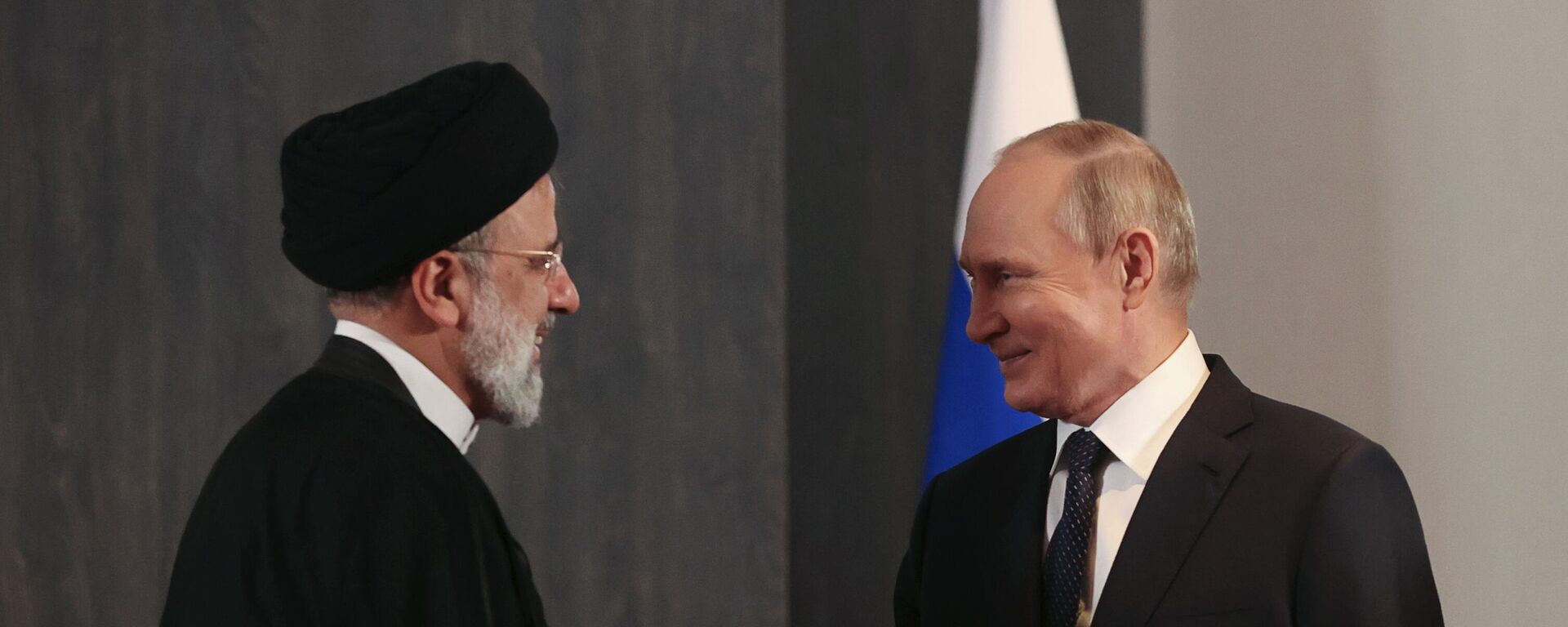
26 September 2023, 12:01 GMT
'Balancing Regional Power'
The crown prince “says openly and publicly that Saudi Arabia would need a nuclear weapon if Iran got one because of ‘security reasons and for balancing power in the Middle East,’” said Dr. Matthew Crosston, professor of national security and director of academic transformation at Bowie State University.
“To me, this is entirely realistic and rational from the foreign policy perspective of Saudi Arabia. Having a nuclear Iran in the Middle East not offset and balanced by a nuclear Saudi Arabia would make utterly no sense at all to the Saudis, and would be highly irresponsible on the part of the Saudi government. Is it a “most preferred” option? Of course not. He basically says as much in the same speech. But Saudi Arabia will always protect itself against its true main rival for regional hegemon,” said Dr. Matthew Crosston.
Iran has spent decades pursuing peaceful nuclear energy to ensure its long-term energy independence. However, the US and its allies have leveled sanctions against the Islamic Republic over its nuclear program, claiming Tehran secretly wants to build a nuclear bomb - something that Tehran denies. Israel has also long claimed (but never proven) that Iran’s peaceful nuclear program has military purposes. Tehran has assured that weapons of mass destruction are against the tenants of Islam.
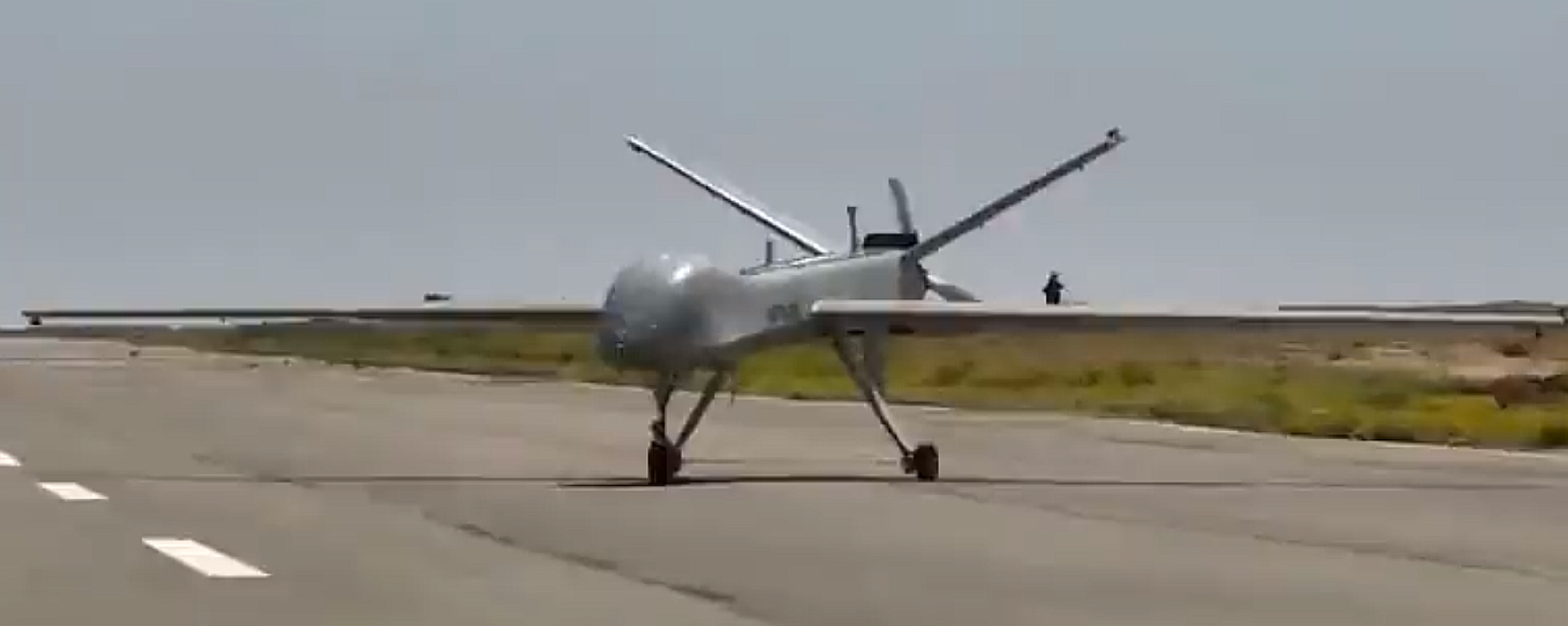
23 August 2023, 17:42 GMT
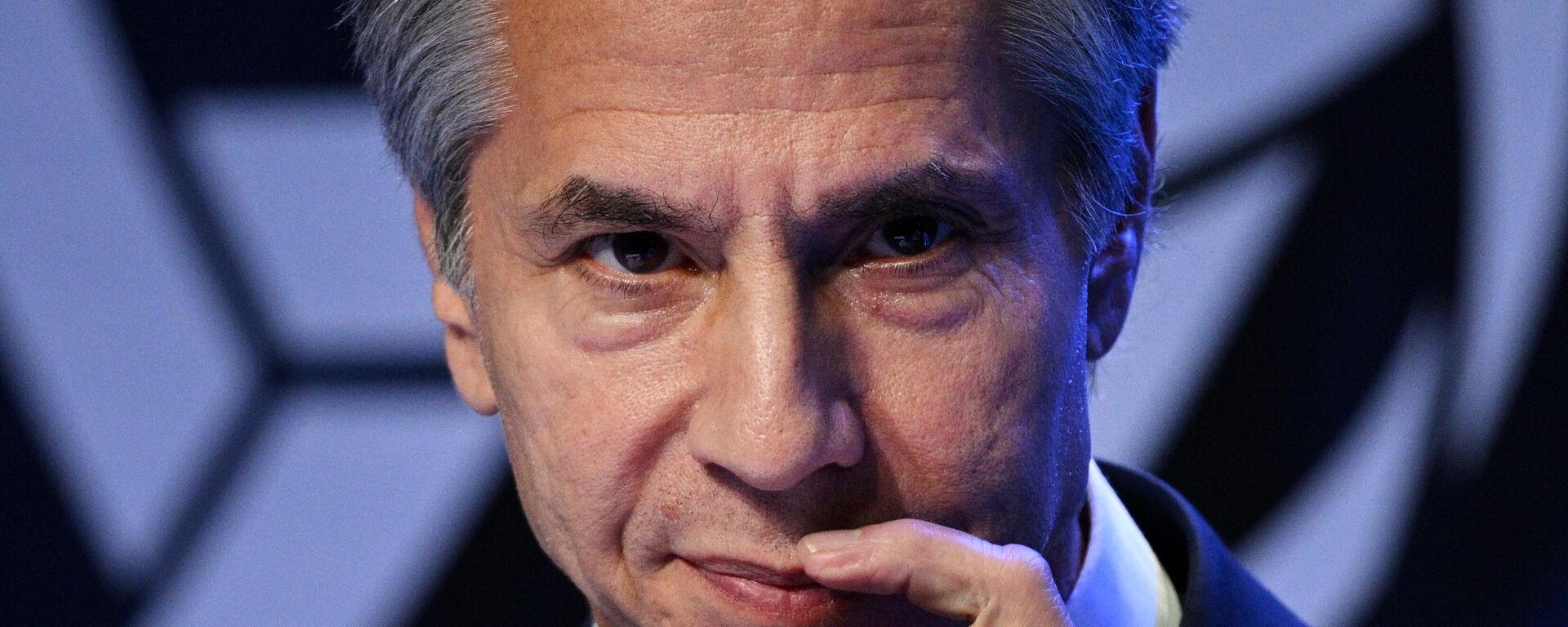
16 September 2023, 03:13 GMT
The remarks by Crown Prince Mohammed bin Salman were followed by Saudi Arabia announcing that it was committed to moving forward with its program to build a civilian nuclear power industry, while allowing for greater oversight for International Atomic Energy Agency (IAEA) inspectors.
“The kingdom has recently taken the decision to rescind its Small Quantities Protocol and to move to the implementation of a full-scope Comprehensive Safeguards Agreement (CSA)” Saudi Energy Minister Prince Abdulaziz bin Salman Al Saud said in Vienna on Monday at the IAEA’s annual general conference.
Currently, Saudi Arabia has a 30 kWt low power research reactor (LPRR) under construction at King Abdulaziz City for Science and Technology (KACST) in Riyadh by Argentina's INVAP. The project was officially launched in November 2018, and it has not yet been put into operation. The IAEA’s Small Quantities Protocol (SQP) exempts countries with little or no nuclear material from many inspections and transparency requirements. However, the switch to CSA will mean that the Gulf Arab nation will be able to access supplies of fissile material and, subsequently, launch its first reactor.
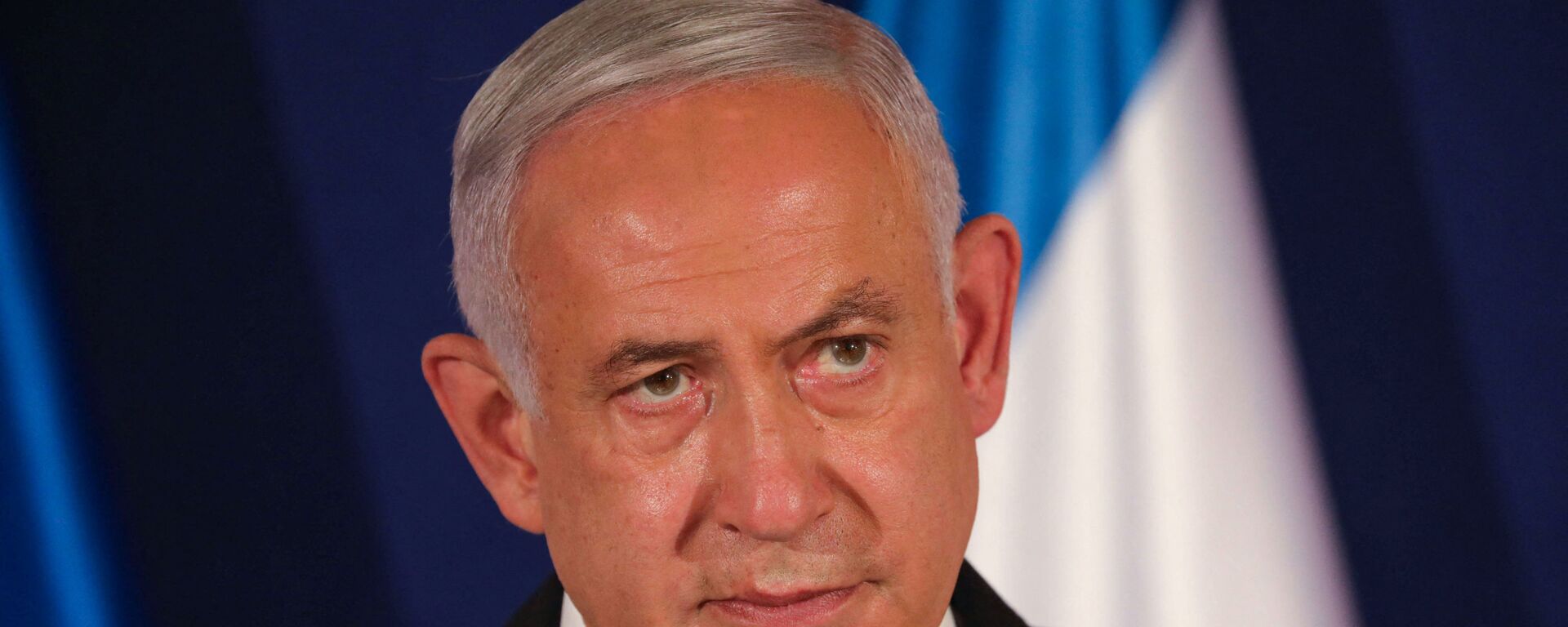
23 September 2023, 16:03 GMT
'Concessions & Security Guarantees'
Furthermore, the debate around the possibility of Saudi Arabia acquiring a nuclear weapon comes as Riyadh and Tel Aviv could be poised
to hammer out a deal that would normalize relations between the two countries. A US media outlet reported earlier in the month, citing Israel’s Minister of Strategic Affairs Ron Dermer, Israeli Prime Minister Benjamin Netanyahu’s “top confidant,” that a “
normalization deal” was going to be worked out in the near future. Israel was “at the cusp” of a “
historic peace deal” with Saudi Arabia, Netanyahu has said at the recent UN General Assembly.
By 2020, Israel had diplomatic relations with only two Arab countries in the region, Jordan and Egypt. The US launched a process to normalize relations between Israel and other Arab states, which resulted in the United Arab Emirates and Bahrain signing a set of documents known as the Abraham Accords in 2020. They were joined by Morocco in December of that year.
If Saudi Arabia is indeed in the final stages of normalizing relations with Israel, it would explain the timing of the crown prince bringing up the issue of nuclear weapons, Professor Mehran Kamrava suggested. In his opinion, Crown Prince Mohammed bin Salman was "sending a message to the US" in the hopes of "a maximum amount of concessions" from it. The concessions in question refer to reports of a uranium enrichment initiative for the kingdom purportedly floated as part of three-way talks between Saudi Arabia, Israel, and the US.
Tel Aviv officials were cited as “quietly working with the Biden administration” on a project that would envision setting up a US-run uranium-enrichment operation in Saudi Arabia, according to a US media report this month. Prime Minister Benjamin Netanyahu ostensibly instructed leading nuclear and security specialists in his country to engage with US negotiators to facilitate the recognition of Israel by Saudi Arabia. The latter could purportedly be speeded up by aiding the kingdom in developing a civilian nuclear program. Neither the US nor Israel have agreed on such a plan, added the report citing sources. However, Joe Biden reportedly discussed the mulled plan when meeting with Benjamin Netanyahu in New York on the sidelines of the United Nations General Assembly.
“Nobody on the international stage would support Saudi Arabia's intentions to get a nuclear weapon. But the assumption has always been that they would buy one, possibly from Pakistan, or they would buy the expertise from somewhere,” said Mehran Kamrava.
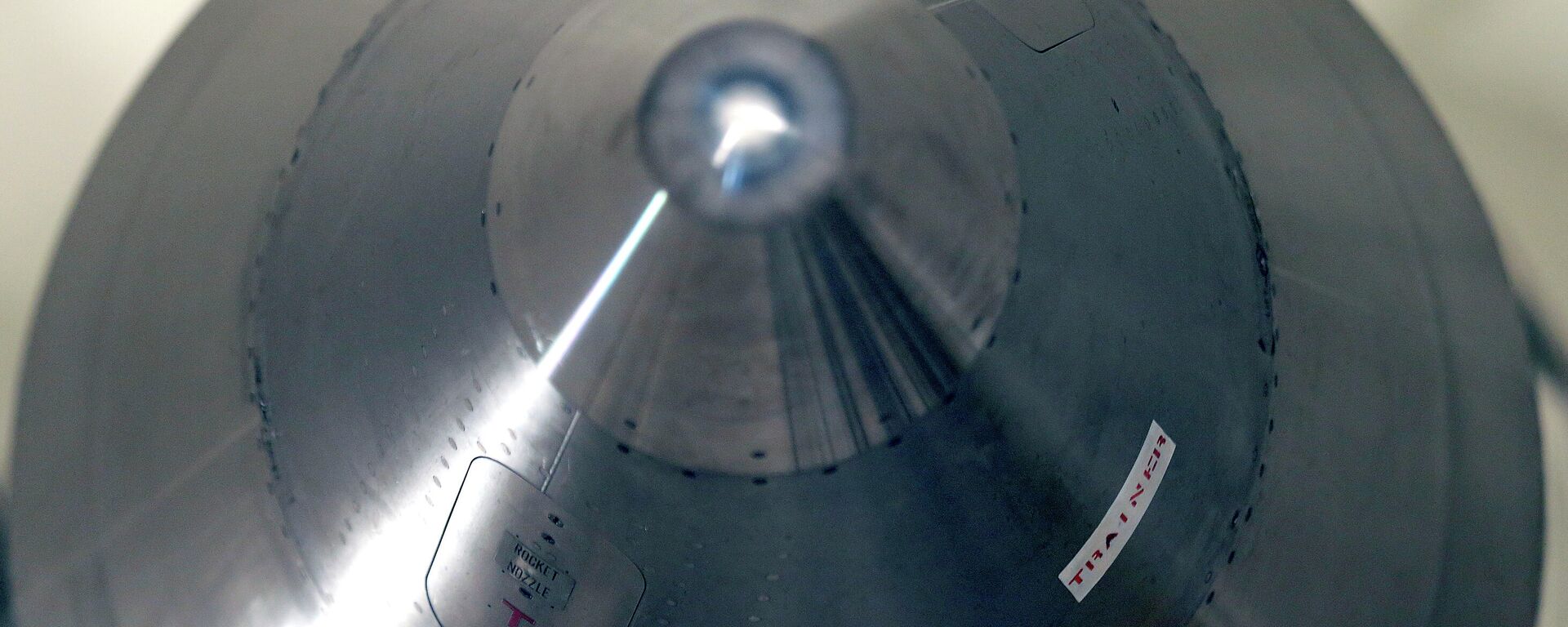
11 September 2023, 18:27 GMT
Describing the statements of Saudi Arabia regarding acquiring a nuclear weapon as “simply maneuvering,” the professor expressed his belief that such aspirations would not have any support.
“Would it be in the interests of the United States or Israel? Of course not. And even if the relations are normalized with Israel, neither the US, nor Israel would support a nuclear Saudi Arabia or the idea that Saudi Arabia might have the capability... And again, this is a maneuver designed to get maximum security guarantees from the United States and a longer term concession,” underscored Mehran Kamrava.
As to who might support a Saudi intention to acquire nuclear weapons on the international arena, there are “multiple sides with their own competing (and contradicting) interests,” Dr. Matthew Crosston pointed out. The professor used the phrase “triangulation strangulation,” as he suggested that there was more than just competing sides looking at the issue from a “direct binary calculation.”
Saudi Arabia becoming nuclear-armed would hardly be viewed favorably by China, Crosston added, as Beijing’s “own plans in the region through the BRI project (Belt and Road Initiative ) would seem to indicate a lack of desire to see the region become more weaponized.”
“Russia has friendly relations not just with Saudi Arabia, but is also extremely close with Iran, so it would have competing complexities if it came down to selecting one over the other and I believe it would rather have neither be nuclear powers,” Crosston emphasized.
Regarding Washington, it would “clearly choose Saudi Arabia over Iran and would likely be the main motor of further arming the Saudis if it could not stop Iran from becoming nuclear,” the pundit said, adding:
“While the Americans do not want anyone in the region possessing nuclear weapons (except for Israel of course), it would totally endorse the Saudis balancing out Iran if the Iranians succeeded in getting one first.”
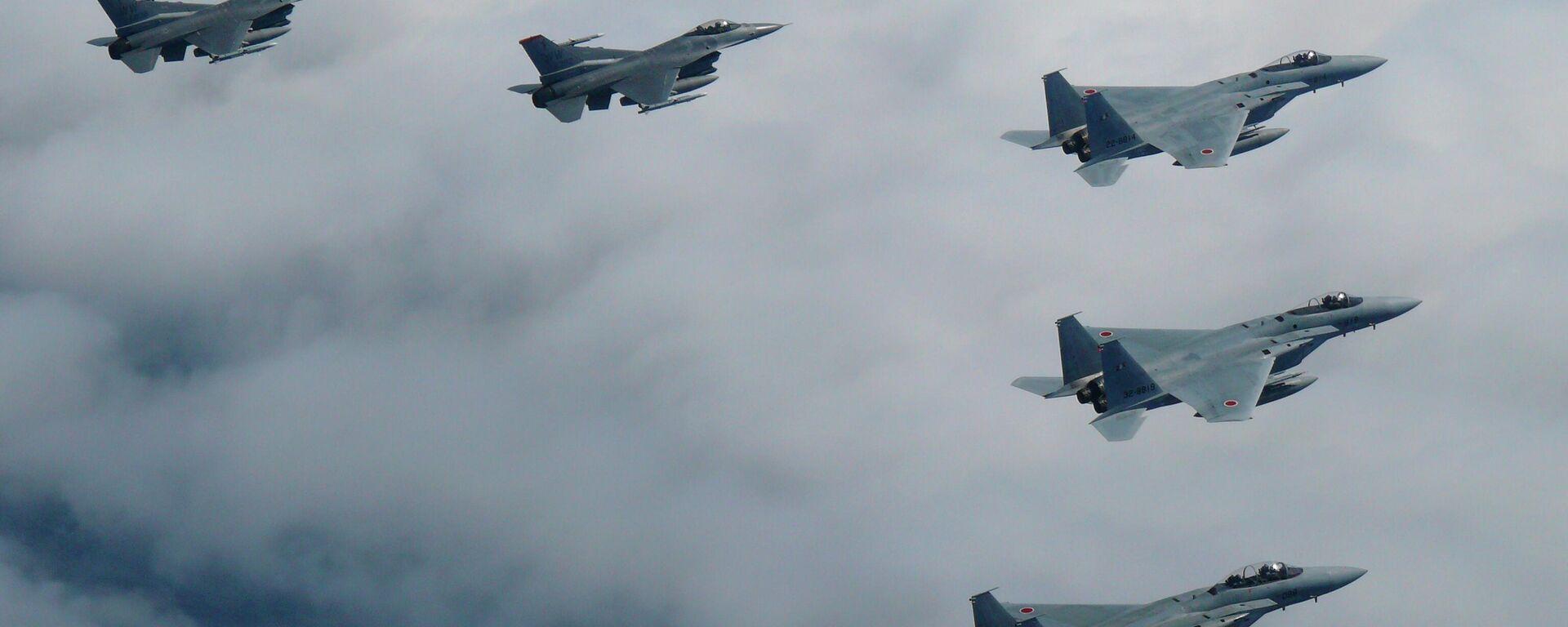
7 September 2023, 05:57 GMT
Speculating on where Saudi Arabia might turn to for acquiring a nuclear weapon, Dr. Matthew Crosston cited “renegade” factors, or “backdoor channels.”
“But these avenues are also not simple and would likely be the longest to develop in terms of functional and efficient nuclear weapons, so I would wager this would be the least preferred path for the Saudis themselves. So, yes, Saudi Arabia could acquire a nuclear weapon without the approval and/or assistance of the United States and Israel, but it would be more complex, take longer, and likely create a host of new foreign policy issues with other countries if it did,” Crosston suggested.
If Saudi Arabia were to become a nuclear power, the speculation that the "geopolitical reality of the region" would change was dismissed by Dr. Matthew Crosston. He added that he was basing his opinion on the presumption that “this likelihood does not happen alone in its own vacuum,” but rather as “part of a negative duality, where Saudi Arabia is convinced Iran is about to enter the nuclear club as well.”
“If both countries become nuclear, then the geopolitical reality remains exactly as it is today, just with a greater atmosphere of deadly tension because now two countries that pretty much despise each other will have easy methods to destroy one another. That will upset the region overall but, for most of the past four decades, the region has been continually put into turmoil over the Saudi-Iranian hegemonic rivalry already. So, the reality will be identical but more deadly in the potential consequences of a military face-off between the two,” said Dr. Matthew Crosston.
Additional Nuclear States a 'Disaster'
Russian Foreign Minister Sergey Lavrov weighed in on the remarks of the Saudi Arabian Crown Prince Mohammed bin Salman during a press conference on September 23, noting that he took it as "a statement of fact."
"No one wants more nuclear countries to emerge in the world. The Islamic Republic of Iran has repeatedly confirmed that it does not have such plans. Their spiritual leader even issued a fatwa on the matter," the top Russian diplomat emphasized, adding:
“This is why we believe that since they will not have a nuclear bomb, Iran’s neighbors will not be tempted to follow that path."
Mehran Kamrava agreed with Russian Foreign Minister Sergey Lavrov’s words.
“Yes, I agree with Foreign Minister Lavrov. This would be a disaster and nobody wants to see a proliferation of additional nuclear states. So I sincerely doubt that that would happen.”
Foreign Minister Lavrov is correct about the international community being averse to seeing any significant change in the current status of nuclear club members, Dr. Matthew Crosston noted.
“The hidden reality behind these kinds of statements is the fact that the current members (even North Korea) have proven themselves to be relatively stable and conservative, somber and serious, about actually using nuclear weapons in a conflict. The international community has always taken solace in that de facto reality, even while wishing nuclear weapons could be eliminated. The entrance of new members to the club would change that reliability: can the global community truly know that a nuclear Iran or nuclear Saudi Arabia would be wise and rational and hesitant to utilize their new-found military capabilities? It cannot know that, and thus the pressure to always try to prevent new members joining this deadly grouping of states will remain,” Dr. Matthew Crosston concluded.
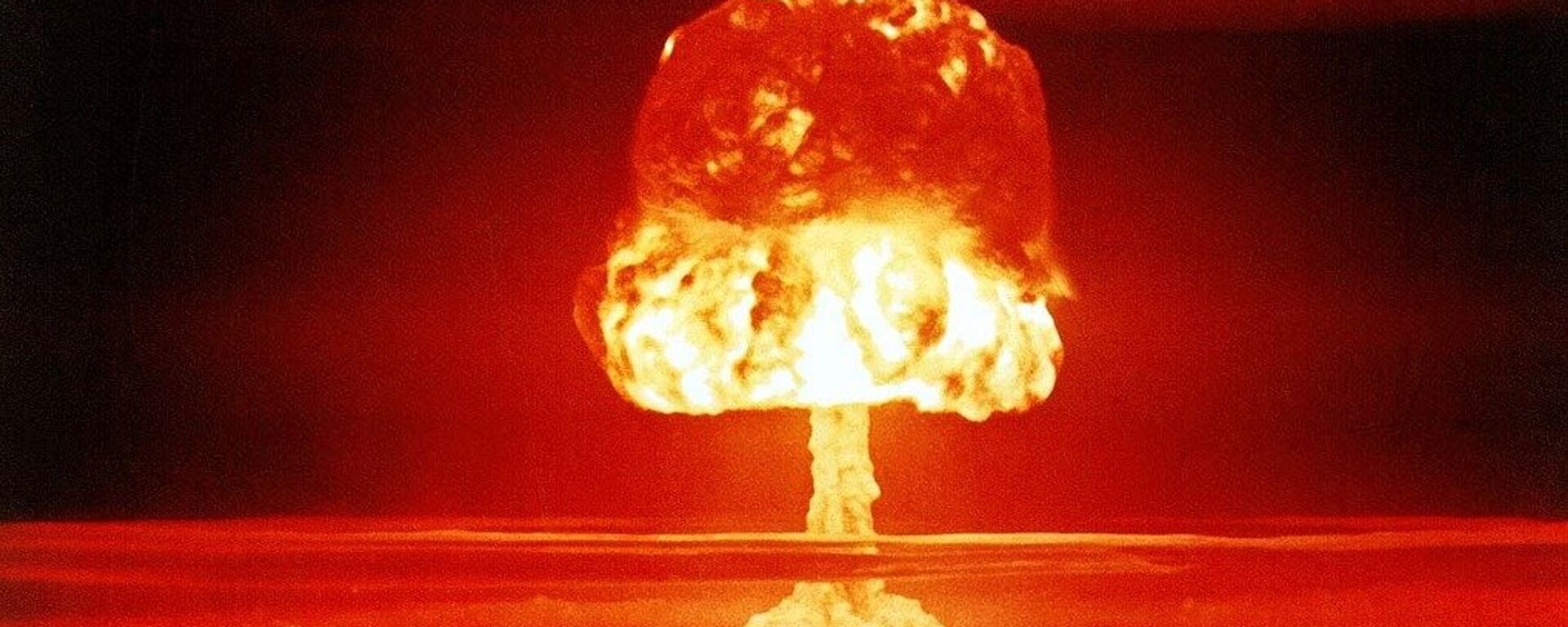
25 September 2023, 07:17 GMT
